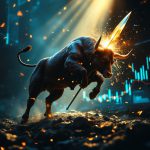Success Uncorked: The Marvels of Contrarian Thinking
Dec 22, 2024
In a world where conventional wisdom reigns supreme, we invite you to embark on a rebellious journey into the realm of success. Success Uncorked: The Marvels of Contrarian Thinking isn’t just another self-help guide—it’s a manifesto for those who dare to challenge the status quo. This essay will ignite your intellectual curiosity, fuel your ambition, and empower you to defy the herd mentality that plagues modern society.
Unleashing the Power of Contrarian Thinking
Contrarian thinking isn’t merely a different perspective—it’s a radical departure from the ordinary. It’s like shining a spotlight into the darkest corners of groupthink, revealing hidden treasures and exposing lurking dangers. By embracing this mindset, you’ll develop a keen eye for spotting flaws in established systems and a knack for sparking innovations that others can’t even fathom.
Provocative Words from a Legendary Trader
Legendary trader Jesse Livermore, known for his uncanny ability to navigate the markets, once made a statement that challenges the essence of conventional thinking: “It never was my thinking that made the big money for me.” This provocative quote encapsulates the spirit of contrarian thinking in finance. While the masses blindly follow market trends, contrarian thinkers like Livermore are already poised to surf the next wave of opportunity.
A Call to Action for the Maverick Within
Are you ready to uncork the bottle of success and let loose the unconventional ideas that will set you apart? It’s time to unleash your inner rebel, question everything, and embrace the rewards of going against the grain. This essay will be your intellectual compass, guiding you through the maze of conventional wisdom and setting you toward extraordinary achievements.
The Financial Rebel’s Manifesto: Bridging Ancient Wisdom and Modern Markets
From the ancient wisdom of Sun Tzu to the cutting-edge insights of modern financiers, the power of contrarian thinking spans millennia. Sun Tzu, the ancient Chinese military strategist, once said, “All warfare is based on deception.” This principle translates seamlessly into the financial markets, where deception—or the art of seeing through deception—can mean the difference between profit and loss.
Imagine a debate between Sun Tzu and Warren Buffett, the Oracle of Omaha. Sun Tzu might advise Buffett on the strategic importance of positioning oneself in the market, using tactics of deception and surprise to outmanoeuvre competitors. Buffett, in turn, would elaborate on the value of patience and long-term thinking, emphasizing that short-term market fluctuations do not sway true contrarian investors but rather focus on the intrinsic value of their investments.
A Meeting of Minds: From Pharaohs to Fintech
Imagine a grand council chamber where ancient wisdom meets modern innovation. On one side sits Pharaoh Khufu, builder of the Great Pyramid and master of long-term wealth preservation. Opposite him is Ray Dalio, founder of Bridgewater Associates and pioneer of systematic investing. Between them stands Satoshi Nakamoto, the enigmatic creator of Bitcoin, representing the cutting edge of financial innovation.
The Pharaoh’s Testament to Wealth Preservation
Khufu’s pyramid wasn’t just a tomb—it was history’s greatest lesson in wealth preservation. The ancient Egyptians mastered:
– Strategic resource allocation (documented in the Rhind Papyrus)
– Diversification across precious metals and grains
– Multi-generational wealth planning through sacred storage systems
Modern parallels emerge in Ray Dalio’s “All-Weather Portfolio” strategy, which mirrors the Pharaohs’ diversification principles across different asset classes to weather any economic storm.
The Fintech Revolution: Ancient Wisdom Meets Modern Innovation
Today’s financial technology pioneers are unknowingly implementing principles that would make the Pharaohs nod in approval:
– Blockchain technology echoes the ancient Egyptian recording systems
– Smart contracts mirror the precision of hieroglyphic trade agreements
– Digital assets provide the same portable wealth concept as ancient trade beads
Real-World Applications
Consider how Square (now Block) founder Jack Dorsey implemented these principles:
– Created a modern digital payment system (Square) based on ancient trade principles
– Integrated Bitcoin, a digital store of value, similar to ancient Egypt’s use of gold
– Developed decentralized finance solutions that mirror ancient trading networks
The Synthesis: Where Past Meets Future
This meeting of minds reveals timeless principles:
- Wealth preservation requires systematic approaches (Pharaonic building programs → Modern portfolio theory)
- Innovation must build on proven foundations (Hieroglyphic records → Blockchain ledgers)
- True value transcends time (Ancient gold standards → Modern cryptocurrency)
Unravelling the Psychology of the Market Masses
To truly master the markets, one must delve into the psychological aspects of market behaviour. Emotions like fear and greed drive investor actions, often leading to irrational decisions. Refer to behavioural finance and psychology concepts to uncover the irrationalities that influence market dynamics.
For instance, the fear of losing money may cause a trader to sell their shares prematurely during a market dip, a behaviour akin to the fight-or-flight response. Behavioural psychology strategies can train traders to recognize these instinctual reactions and assess the market more objectively, reducing the likelihood of making decisions driven by panic or fear.
Harnessing Chaos: Mastering Market Mayhem
Heraclitus believed that chaos and change were fundamental aspects of the universe. Similarly, Ray Dalio has built his investment philosophy around understanding and adapting to what he calls “the economic machine,” recognizing that markets are complex systems with countless variables.
Real-Life Examples of Chaos Mastery
While most investors were panicking, Dalio’s understanding of economic cycles successfully helped Bridgewater navigate the chaos. Like Heraclitus’s observation of the ever-flowing river, Dalio saw the crisis as part of a natural economic cycle rather than an unprecedented disaster.
- Strategic Chaos Utilization
Modern market masters have learned that chaos can powerfully drive creativity and innovation. This reflects Heraclitus’s teaching that opposition and conflict lead to harmony.
The Philosophical-Practical Framework
- Embrace Unpredictability
– Heraclitus: Everything flows, nothing stands still
– Dalio: Markets are **complex systems where behaviour is predetermined but appears random**
- Strategic Chaos Management
The modern application involves **using chaos to bring focus, clarity, and understanding to mission and objectives**. This approach would have resonated with Heraclitus, who sought order within apparent disorder.
Practical Applications
– Use chaos theory to identify patterns in seemingly random market movements
– Apply **mathematical schemes to understand complex variable interactions**
- Risk Management
– Develop strategies that don’t fight against chaos but work with it
– Create systems that become stronger through volatility
The Modern Heraclitus Approach
If Heraclitus were alive today, he might advise traders to:
– View market volatility as a natural state, not an anomaly
– **Understand that chaos contains within it the seeds of opportunity**
– Build systems that become more robust through exposure to disorder
This combination of ancient wisdom and modern practice creates a powerful framework for navigating today’s complex markets. Just as Khaos was one of the first Greek primordial Gods, understanding chaos remains fundamental to market success today.
Technical Analysis Reimagined
Technical analysis provides a scientific framework that complements behavioural psychology’s insights. It involves the study of market action, primarily through the use of charts, to forecast future price trends. By integrating technical analysis, traders can use historical data and statistical models to predict market behaviour, which helps counteract the subjective biases influenced by emotional factors.
For example, historical price movements in commodities should be referred to when discussing support and resistance. The ancient Mesopotamians traded commodities like grain and metals, and their market behaviours remain relevant today. The principles of technical analysis can be applied to modern markets, demonstrating how theory translates into actionable insights.
The Contrarian’s Guide to Market Mastery
Advocating for a contrarian approach encourages readers to think independently and challenge the herd mentality. Highlight the benefits of going against the grain when the masses are swayed by emotion rather than logic. This section could include real-world examples of contrarian investors who have succeeded by defying conventional wisdom.
For instance, Michael Burry’s analysis of the housing market bubble in 2007-2008 illustrates the power of contrarian thinking. Burry’s meticulous research and unwavering conviction led him to bet against the housing market, profiting immensely when the bubble burst. His story is a testament to the value of independent thought and critical analysis.
The Final Word: Forging Your Path in the Financial Wilderness
The markets are an unforgiving wilderness where only the prepared to survive and thrive. As Ray Dalio, founder of Bridgewater Associates, astutely observes, “The biggest mistake investors make is to believe that what happened in the recent past is likely to persist.” This wisdom echoes through time, from the ancient trading ports of Alexandria to the digital exchanges of today.
Consider the contrarian victories that changed financial history:
– Michael Burry’s $2.69 billion profit from the 2008 housing crash
– Peter Thiel’s prescient $500,000 Facebook investment that became $1 billion
– John Templeton’s bold purchase of European stocks during WWII’s darkest hours
The path to financial mastery demands more than mere knowledge—it requires the courage to act when others freeze, the wisdom to wait when others rush, and the discipline to maintain conviction when doubts creep in. As George Soros reminds us, “It’s not whether you’re right or wrong that’s important, but how much money you make when you’re right and how much you lose when you’re wrong.”
Your journey begins now. Armed with:
– Ancient wisdom from millennia of market cycles
– Modern tools of technical analysis
– Psychological insights into mass behaviour
– Cutting-edge fintech innovations
The markets await those bold enough to challenge conventional wisdom while maintaining the discipline to execute systematic strategies. Remember Paul Tudor Jones’s maxim: “The secret to being successful from a trading perspective is to have an indefatigable, undying, and unquenchable thirst for information and knowledge.”
Take action. Start small, think big, and never stop learning. The greatest opportunities often lie where others fear to tread. As you embark on this journey, remember that every market legend started exactly where you are now—with a decision to begin.
The time for contemplation is over. The moment for action is here. Your financial destiny awaits.











